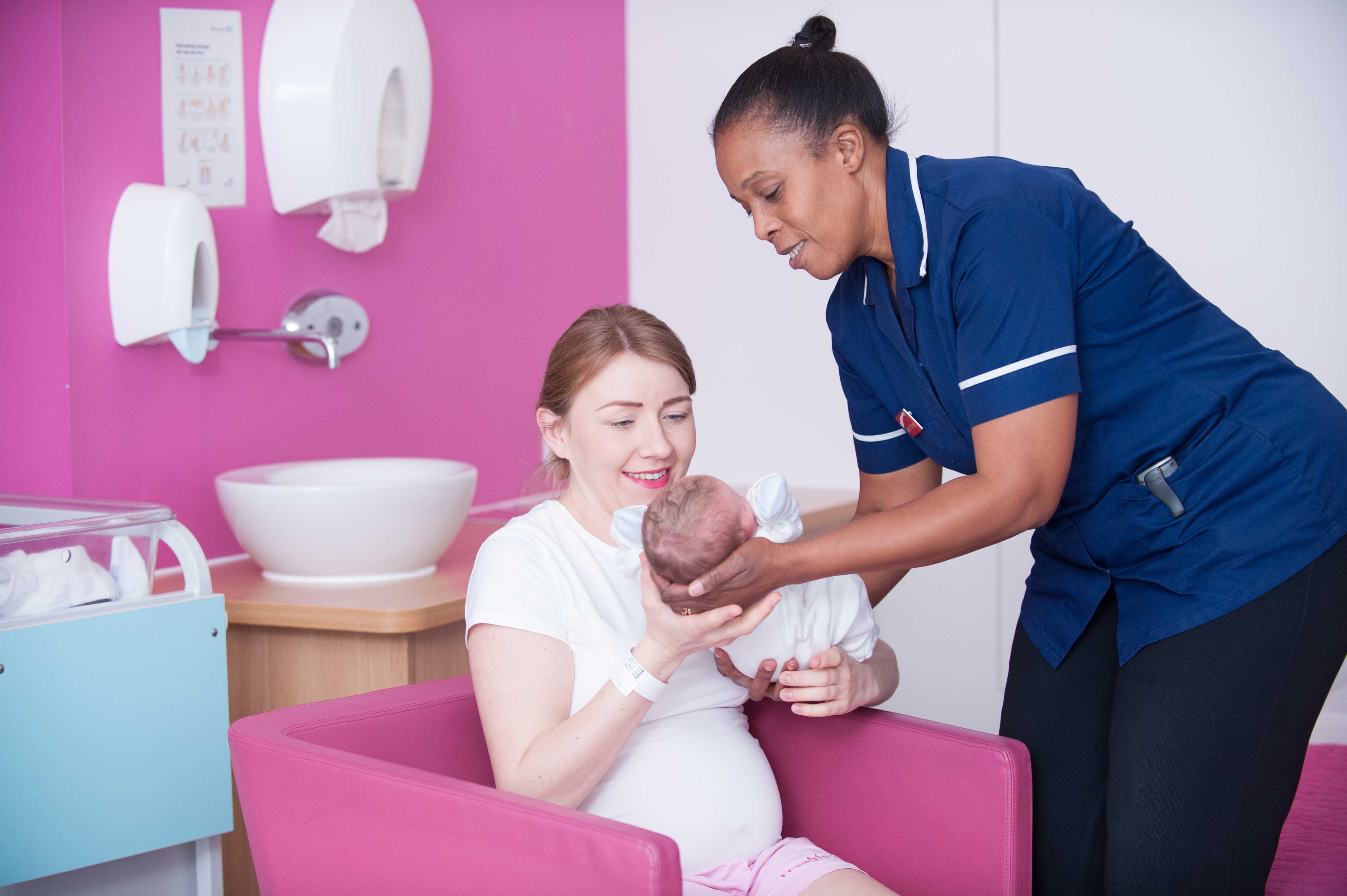New app that predicts preterm birth could reduce unnecessary treatment

Research into a new app that can help predict if a woman is going to give birth prematurely could reduce unnecessary treatment and hospital admissions at Newham and The Royal London hospitals.
Following the development of the QUiPP app led by Guy’s and St Thomas’ and King's College London, health professionals are using the app to identify and treat women who are more likely to give birth prematurely.
Around 60,000 babies are born prematurely in the UK each year, putting them at a higher risk of developing health problems.
Current guidelines advise treating all women 30 weeks pregnant and under who present symptoms of threatened preterm labour, even though many will not go on to deliver early.
The app calculates the risk of premature birth using an algorithm that assesses several factors, including a history of previous premature births, a cervical length measurement (the neck of the womb) and level of fetal fibronectin (a ‘glue’ that binds the amniotic sac to the lining of the uterus).
Two previous clinical trials have shown that the app is a very accurate tool for predicting preterm birth within seven days. For example, for women experiencing symptoms, such as contractions, or women who are asymptomatic but deemed at high-risk due to other factors.
The new EQUIPTT study (Evaluation of QUiPP app for Triage and Transfer) has been launched at 13 obstetric centres across the UK – seven will use the app and six will not. The study aims to recruit 580 women over the next 12 months to look at whether the QUiPP app can reduce the number of women with symptoms of threatened preterm labour, most of whom will not actually go on to deliver their babies within seven days, being unnecessarily admitted to hospital and given medical interventions.
Chief investigator Professor Andrew Shennan OBE, consultant obstetrician at Guy's and St Thomas' and Professor of Obstetrics at King's College London, said: “The more accurately we can predict a woman’s risk of preterm birth, the better we can manage a woman's pregnancy to ensure the safest possible birth for her and her baby.
"It can be difficult for doctors to accurately assess a woman's risk, given that many women who show symptoms of preterm labour do not go on to deliver early.”
Jo Deery, 36 from Margate in Kent, had seven miscarriages before being referred to St Thomas’ Hospital in 2015. When the mother of three fell pregnant again she had transabdominal cerclage – a stitch that closes the cervix during pregnancy to help prevent miscarriage or premature birth.
Jo, a research nurse, said: “The doctors used the QUiPP app on me and it turned out that my chance of going into preterm labour again was very very small. I was able to go home and it gave me a brilliant peace of mind. I actually carried my baby son, Cooper, to full term.”
The EQUIPTT study and the QUiPP app both received funding from Guy’s and St Thomas’ Charity. The National Institute of Health Research, Tommy’s Charity and the King’s College London Lion’s Den Health Innovation Prize also helped fund the development of the app.
Hospitals involved are: St Thomas’ Hospital, Chelsea & Westminster Hospital, Croydon Hospital, Frimley Hospital, Kingston Hospital, Lewisham Hospital, Northampton Hospital, University College London Hospital, West Middlesex Hospital, The Whittington Hospital, Queen Elizabeth Woolwich Hospital, The Royal London Hospital and Newham Hospital.
